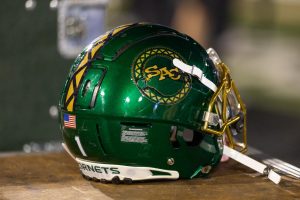Accounting professor comments on exploits of European teaching stint
February 7, 2001
A grant from the Fulbright Commission recently afforded Sacramento State accounting professor Eugene Sauls the opportunity to lecture at the University of Rijeka in Croatia. Sauls arrived in Croatia on Oct. 1, 2000, and, with the host instructors, spent the autumn months teaching accounting classes to the students at the university.
“Everybody is interested in what is going on in the U.S. Everybody is interested in learning what we learn here, especially learning English,” Sauls said, who returned home earlier in January.
Sauls earned the money for the trip, his third Fulbright lectureship, by completing a two-part process.
The first part is to apply to the Fulbright Commission, named for its founder Sen. J. William Fulbright. If the selection committee finds the candidate worthy, the application is forwarded to another committee in the host country, which works in conjunction with the U.S. Embassy to make the final decision.
When requesting teachers, the host country asks for candidates with specific areas of instruction, although demand varies for particular disciplines from country to country.
“It depends on what they think they need,” Sauls said.
During the lectureship, Sauls developed an impression of the European educational system. He had already visited Turkey in 1984 and Hungary in 1992 and found similarities in Croatia.
“Most of the world is shifting toward the way we do things and I think that they are right to do so,” Sauls said.
He said that students in the European university system take all their tests at the end of the year and some reach the end of their scholastic careers before they take an exam.
“There were some students when we arrived that were still taking exams from the year before,” Sauls said.
Having a full year?s instruction before any exams are taken creates pressure and makes it difficult for students to recall all of the material they have learned. This is a major reason that European countries like Croatia are changing their educational program to one that more resembles our own.
“They are moving away from a European structure. We have much more definite closure on things. Our constant exam schedule is better than just one exam at the end. Everybody thinks it?s better because everybody is changing to it,” Sauls said.
Sauls said he felt that there was virtually no difference between European and American students.
“Like here, there are some students who have no business being there, but a large number of them are very interested in learning whatever they can. I think students are about the same anywhere you go,” Sauls said.
Being an accounting professor, Sauls also took notice of the economic climate in Croatia.
“They are suffering in Croatia because of the war. The economy is dependent on tourism and the tourism still hasn?t rebounded to where it was pre-war,” Sauls said. “The war has been over for nine or 10 years, it just takes a while to let people know that.”




























































































































